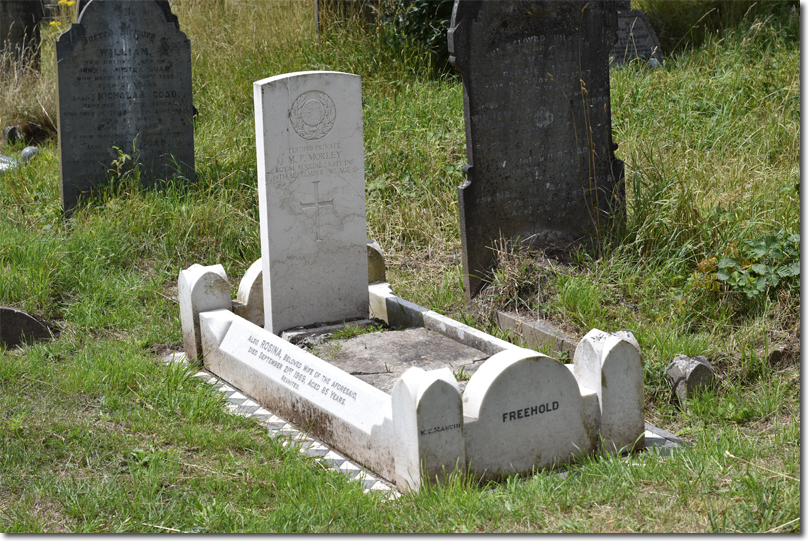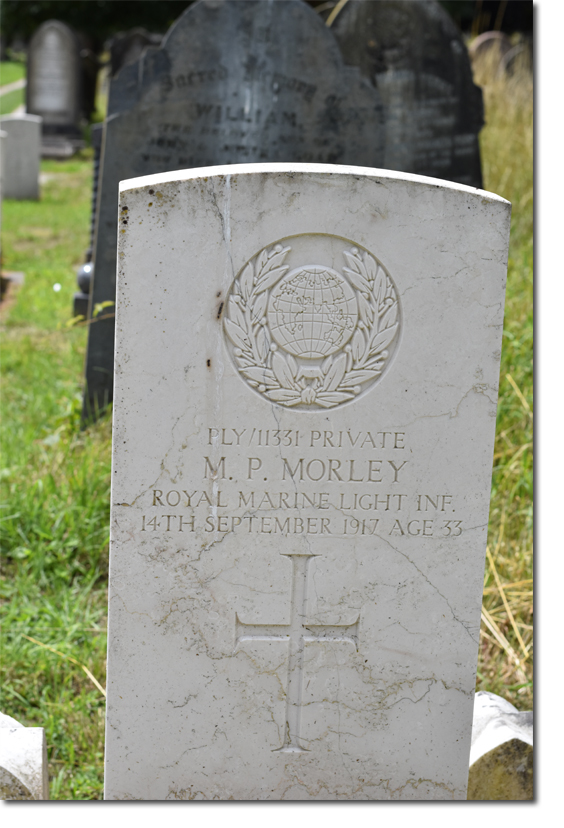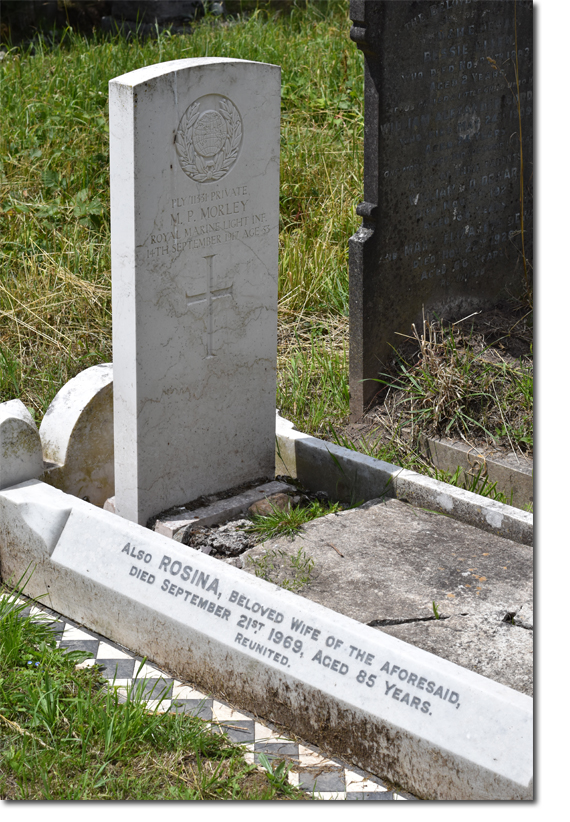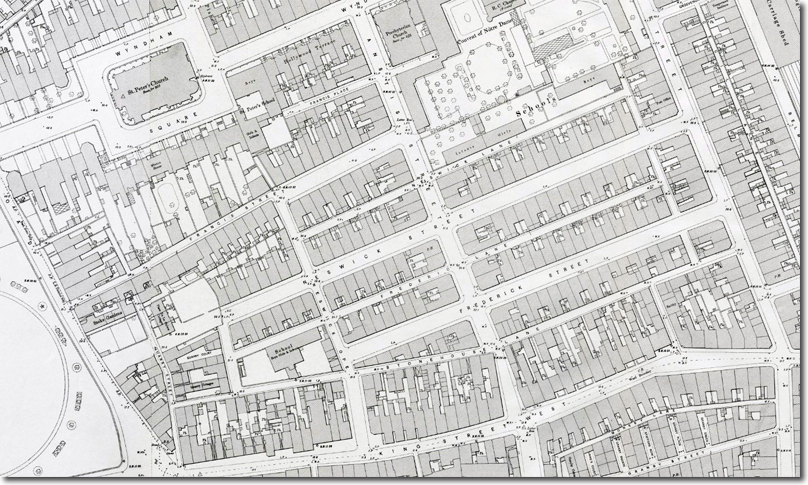|
|


|
|
I have to say that I find this combination of two graves in Ford Park Cemetery particularly poignant. It shows the CWGC grave of Michael Patrick Morley of the Royal Marine Light Infantry (Plymouth Division) joined together with that of his widow Rosina who died over five decades after he had passed away. The word that really takes your breath away is “Reunited”. It is more poignant to know that he died in her arms at their home of 46 Neswick Street in St Peter’s here in Plymouth. Originally Private Morley had hailed from Salford but he had been a pre-war Royal Marine having joined up in 1902. In his 30s he would have been one of the more experienced Marines. Sadly during his service he contracted Tuberculosis like many soldiers and sailors did especially in cramped and damp barracks or on board ship. He was so ill he was invalided out of the Royal Marines in May 1917 and passed away at the age of just 33 in September of that year.
The Plymouth Division had been involved in not one but two of Winston Churchill’s war time follies. Firstly in the Admiralty’s forlorn attempt to defend Antwerp from the advancing German invasion of Belgium. Their second brush with Churchill’s grand plans at the Admiralty were at Gallipoli where they had attempted to seize the Dardanelles Straits only to recreate the Western Front conditions in the harsh and desolate terrain in the Middle East. Indeed the Plymouth Division were some of the very first troops to be involved in the campaign when they were landed to destroy some of the Turkish land batteries whilst ships of the Royal Navy and the French Navy attempted to force their way through the Straits. The Royal Marines did what was asked of them but mines sank some of the advancing ships and forced a fateful rethink. The smash and grab turned into a long and drawn out escapade with which the Plymouth Division played a prominent role for many more months yet. Sadly they took such high casualties they had to be amalgamated with the Portsmouth and Chatham Divisions of the Royal Marines Light Infantry and eventually formed part of the Royal Naval Division. They were redeployed to France in 1916 to fight in the trenches. It is not clear when or where Private Morley contracted Tuberculosis but tens of thousands of Britain’s soldiers and sailors suffered similarly and before the invention of penicillin it was a fatal disease for far too many people who would otherwise have survived in later generations. The fact that his wife lived to the ripe age of 85 without marrying again is a powerful expression of love and dedication. It also goes to show just how impactful war could be on the wider community. We need to think of the impact of these warrior's deaths on their friends, families and loved ones. “Reunited” Finally. |

|

|

|
Percy Luscombe Article | Empire in Your Backyard: Plymouth Article
Armed Forces | Art and Culture | Articles | Biographies | Colonies | Discussion | Glossary | Home | Library | Links | Map Room | Sources and Media | Science and Technology | Search | Student Zone | Timelines | TV & Film | Wargames